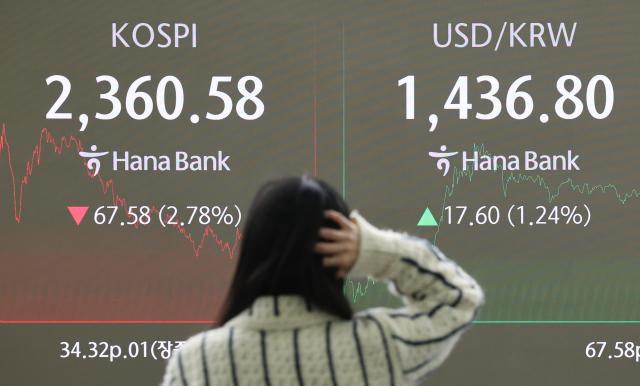
On Monday, the benchmark KOSPI fell below the 2,400 mark and closed at 2,360.58, down 2.78 percent, while the tech-heavy KOSDAQ index plunged 5.19 percent.
Foreign investors sold 725.5 billion won ($556 million) worth of shares in the two days following the martial law declaration, pushing the total market capitalization below 2,000 trillion won for the first time since Nov. 15 due to post-U.S. selection trading.
After net selling 1.01 trillion won worth of shares in the KOSPI market from Dec. 4 to 6, foreign investors switched to net buying of 100 billion won Monday. They also net purchased more than 200 billion won worth of KOSPI 200 futures.
Global investment firms are signaling caution on South Korean markets, with Goldman Sachs predicting continued market volatility amid political uncertainty, while CLSA advised its clients on Thursday to speed up the reduction of their Korean market exposure ahead of next year.
Lee Bok-hyun, head of the Financial Supervisory Service, attempted to reassure investors in a Bloomberg TV interview on Friday, saying "the value-up program will continue regardless of impeachment, power transition, or political instability" and that "people of all political leanings support the value-up program."
Major global investment banks, including Goldman Sachs and Morgan Stanley, have issued negative views on South Korean market investments, warning of economic growth slowdown.
"The decline in confidence in the Korean economy amid political uncertainty could increase funding risks, especially for companies facing potential liquidity crises," said Park Sang-hyun, an analyst at iM Securities.
Copyright ⓒ Aju Press All rights reserved.


View more comments